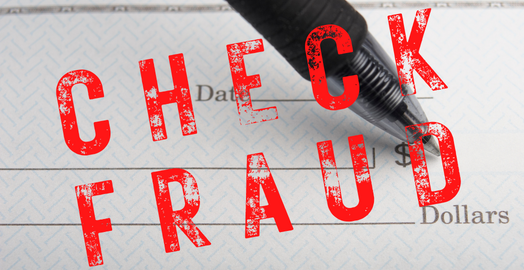Fraudsters continue to seek out legitimate businesses they can use as a cover for illegal schemes that attempt to separate people from their money. One of the fraud scams that has reemerged is the check fraud scheme.
The claims team was recently notified of a scenario involving an Alliant National agent. A new purchase agreement and a sizeable earnest money deposit cashier’s check was presented to the agent. The cashier’s check was from a foreign bank and was promptly deposited by the agent into their escrow account. Shortly after depositing the check, the buyer notified the agent that the transaction was cancelled. The buyer demanded the agent promptly return the funds through aggressively worded emails and continuous phone calls. The agent did the right thing by not allowing the purported buyer to usurp the procedures that the agent already had in place. Ultimately, the foreign bank confirmed that the cashier’s check was fraudulent, and the purported buyer ceased any further efforts to communicate with the agent.
A few Red Flags from the transaction included:
- A foreign buyer,
- For sale by owner transaction,
- No real estate agent utilized in the transaction,
- Use of non-standard real estate purchase and sale agreement template,
- Termination of the purchase and sale agreement was quickly sent to the agent after the check was deposited, and
- An aggressive stance is taken by the buyer requesting that the funds be returned.
Appropriately, the agent did not rush the process, notified the purported foreign buyer of their check verification process, independently researched and located contact information for the foreign bank, confirmed the validity (or lack thereof) of the cashier’s check with the bank, and waited for confirmation from the bank on whether or not the funds cleared the account.
For a foreign bank’s check, it is important to remember that it may take several weeks for funds to clear an account. If you act and return funds too quickly, the buyer’s original check may be returned due to insufficient funds. If you attempt to try and recover the funds from the buyer, most likely the buyer will refuse to return the money or the buyer can no longer be located. Then, the agent is left without those funds in their escrow account, which will lead to other issues.
It is critical to stay alert and continue to recognize this and other fraud schemes before fraudsters visit your office. You can learn more about identifying and preventing fraud by downloading Alliant National’s white paper – Escrow Fraud/Social Engineering: Recent Schemes and Prevention Tips. This 23-page guide was also referenced in our recent #AllNatAdvantage post titled The #1 Tool For Recovering Diverted Funds: Your Wire Fraud Response Plan.
In addition, here are a few other resources that outline a similar check scam:
- American Bankers Association – Fake Check Scams – https://www.aba.com/advocacy/community-programs/consumer-resources/protect-your-money/fake-check-scams.
- Federal Deposit Insurance Corporation – FDIC Consumer News: Beware of Fake Checks – https://www.fdic.gov/consumers/consumer/news/august2019.html#:~:text=A%20fake%20cashier’s%20check%20is,cover%20the%20taxes%20and%20fees.&text=Scammers%20might%20go%20to%20an,advance%2C%20or%20rent%20an%20apartment.
- Federal Trade Commission – How to Spot, Avoid, and Report Fake Check Scams – https://consumer.ftc.gov/articles/how-spot-avoid-report-fake-check-scams.
If you have questions, please contact the Alliant National claims team.



